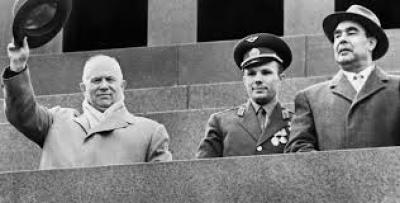Allied Credulity Paved Way to conflict
For the past 117 years Germany has known how to extract motor spirit fuel from the air. This on top of the fact that Germany had invented in the first place the combustion engine motor vehicle carried a definite implication: Germany would introduce for the mass market the alternative to fossil fuels.
The opposite happened. Germany instead became dependent on fossil fuel energy derived from Russia.
The original belief that Germany would introduce alternative fuels stemmed from Germany’s domination of chemical synthesis giving it 70 percent of the world market and giving the world such names as BASF, Hoechst, Bayer and the I.G Farben combine.
After World War 2 the Allies were determined to install in the Axis powers a system of government which would eliminate dictatorships. Proportional representation was the solution.
It eliminated autocrats. But ushered in an element that would reveal its peril only much later on.
In the meantime Germany started to construct nuclear power stations, a construction that would become greatly accelerated after the Middle East oil shocks.
The growing die Grünen now started conflating the existing German peace movement with anti nuclear environmentalism.
As die Grünen grew so did its determination to shut down nuclear power, a campaign that was only thwarted in its total success when the last remaining reactors were saved from closure by the February 24 Ukraine invasion.
Even during the height of the Soviet era in the partitioned Germany the allies consistently underrated the German Ostpolitik doctrine which actively sought a rapprochement with the Soviets.
Then came the fall of the Berlin Wall and with it the acceleration of die Grünen. Germany became increasingly dependent on imported energy. It was cost-effective and successive coalition governments dare not challenge die Grünen because it increasingly held the balance of power.
The reunified Germany far from releasing the power of its chemical and engineering sectors to implement alternative fuels had simply decided to use Russia’s.
Global academia and think tanks always failed to factor in Germany’s thirst for Russian hydrocarbons. Its defeat in World War 2 was a result of operation Barbarossa designed to capture Russia’s carboniferous resources.
Neither did the West’s academia and think tanks care to look too closely into the way Germany’s commercial weltanschauung far from engaging in a united effort to synthesize fuel now simply dealt with China in development of the automotive and engineering sectors.
Indeed, many would be surprised if they knew how many high-branded premium face value German products are in fact machined in China.
Neither did these same think tanks and research “units” care to wonder too deeply why after its 2014 seizure of the Crimea and resulting sanctions Russia went ahead and tried to appropriate the remaining area of Ukraine it hadn’t already captured,
The reason was that president Putin knew by then that even into the longer term Russia was sanction-proof, thanks to an unparalleled era of credulity in Europe and the United States.
The February 24 invasion blew apart the set of deliberately cultivated Western politico media illusions about Germany.
One of these was the belief rigidly held by this same class that Germany’s environmental movement in its political guise was entirely a force for good.
February 24 severely dented also the media class extreme reluctance to challenge China on anything at all. Even now a shunned topic is the linkage between the Beijing Olympics at one end and the United States midterm elections this year as the likely window of opportunity for staging the invasion.
Ukraine tore away the myth fostered in the United States that China by virtue of trade would become a benign force. After February 24 there emerged a new trade bloc, the Russia-Soviet one.
Nowhere is this credulity more evident than about president Putin himself.
Russia’s post Stalinist rulers governed under a first-among-equals arrangement. The Nikita Kruschev (pictured) troika was an example . After some initial window dressing for the benefit of the West Putin like Stalin ensured that he ruled alone.
Bismarck coined the term Realpolitik. In the last 30 years Germany became the focus of what now is so cruelly revealed as the diametric opposite in the form of Unrealpolitik, wishful thinking detached from evolving realities.
This illusory politik was though masked by a piety that effectively deflected any criticism or commentary as to the eventual destination which was ultimately revealed on February 24.

